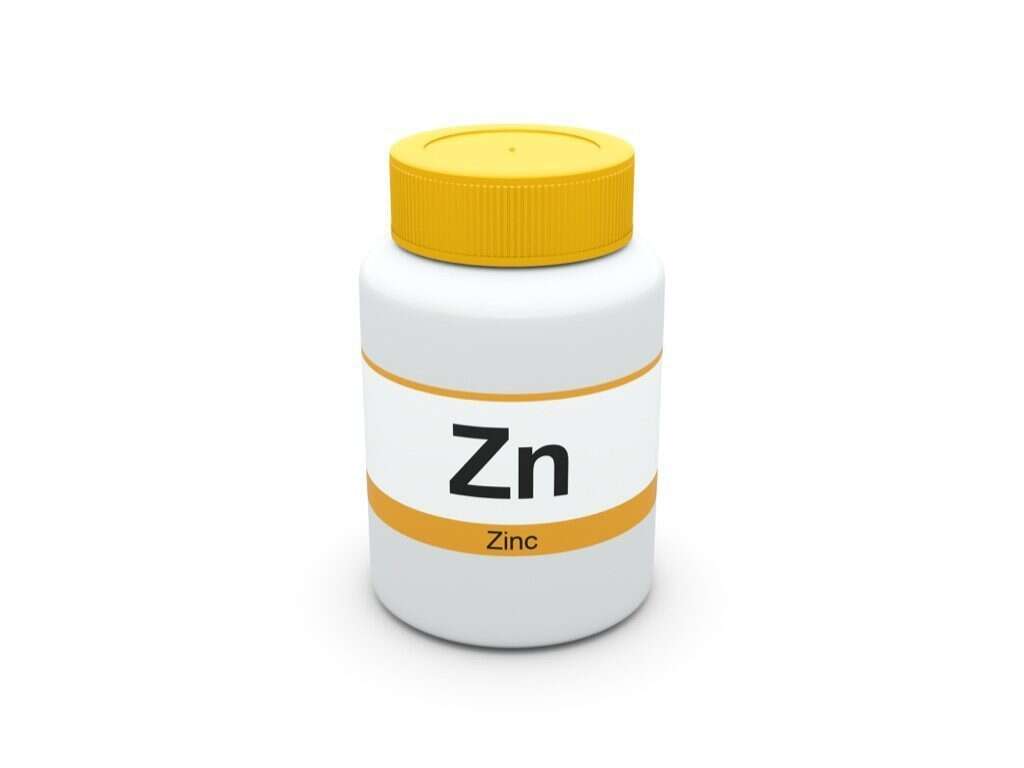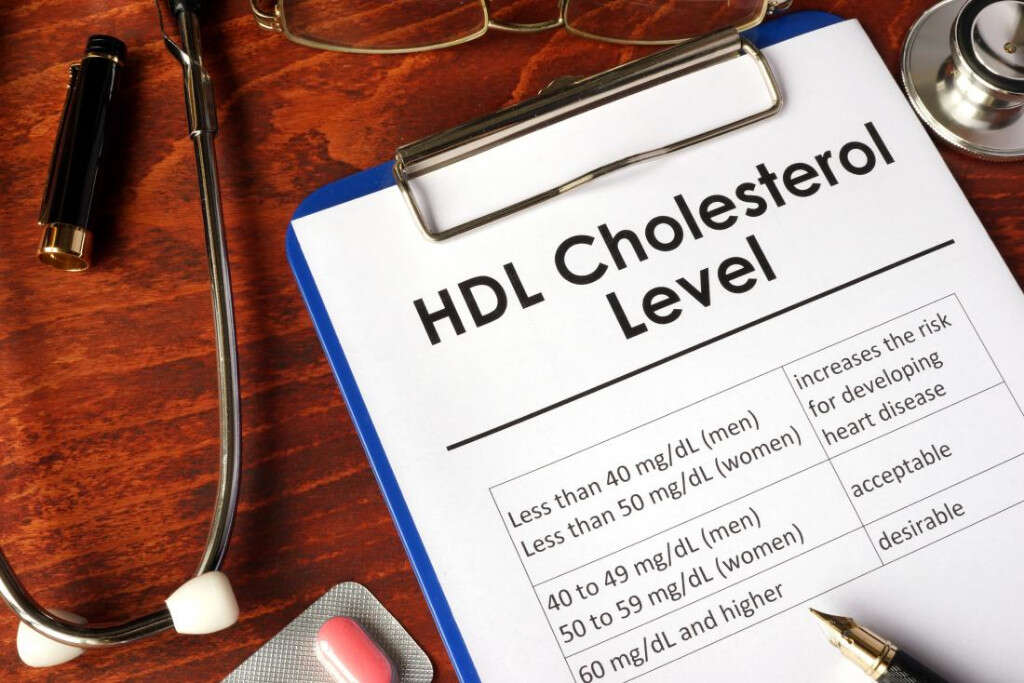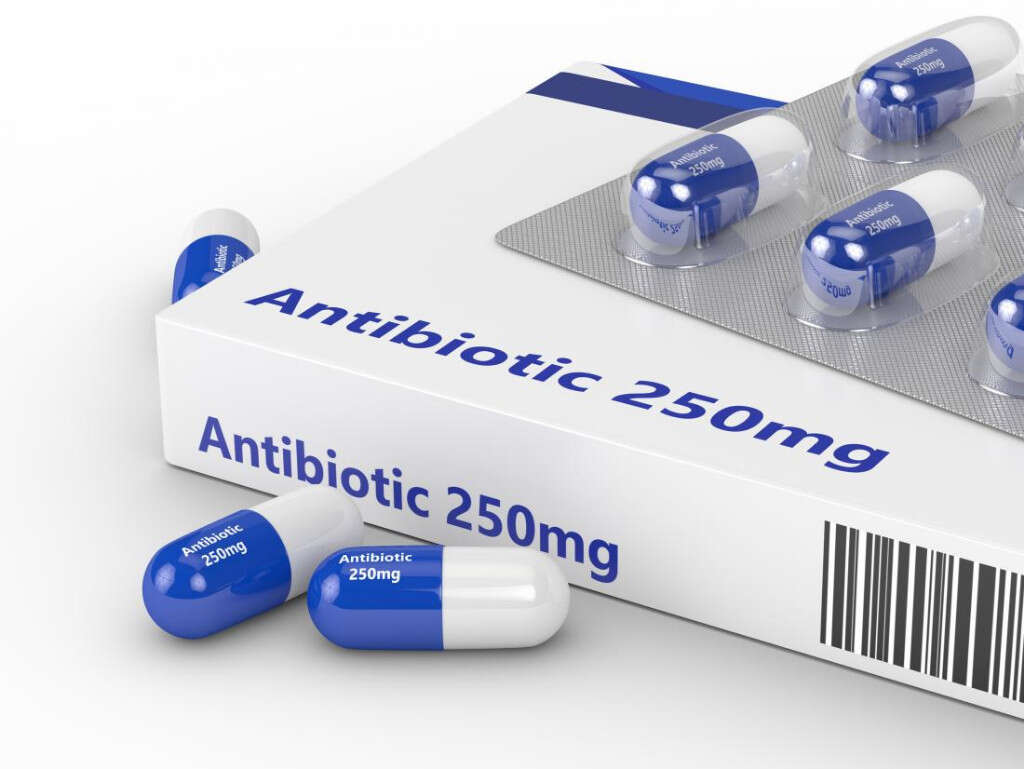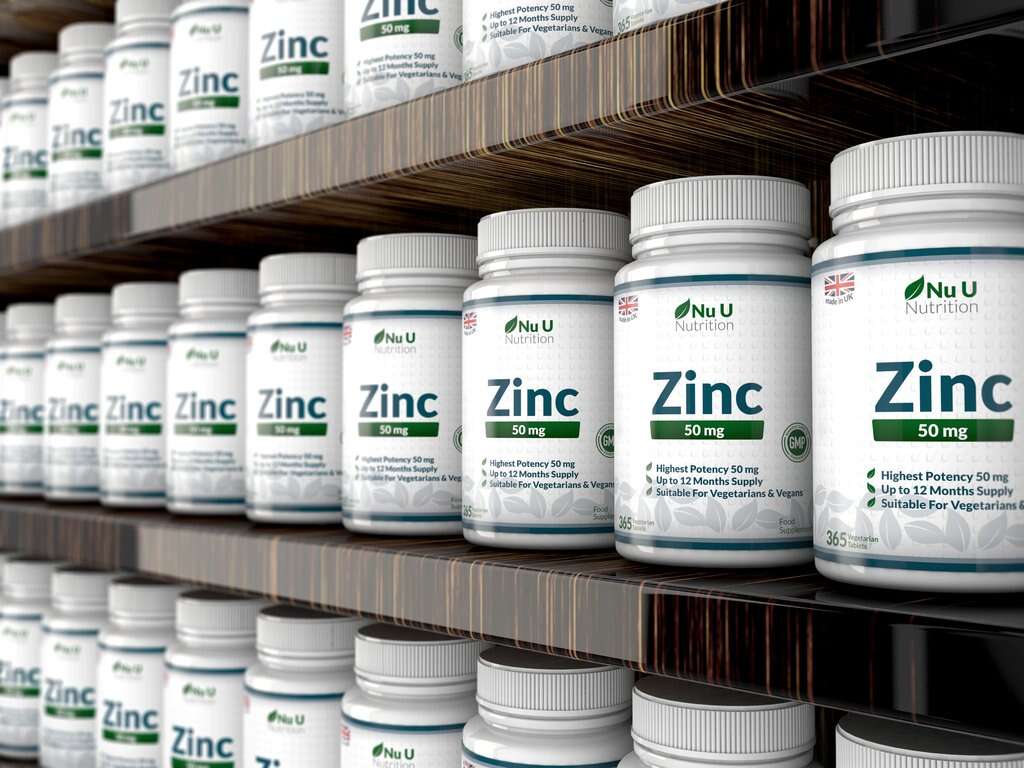10 Side Effects of Zinc
Zinc is a transition metal, falling into the same category as various other substances. It occurs naturally and has been used for thousands of years for various purposes. It is also an essential mineral, which means it is important for our health and well-being.
It is commonly found in food so obtaining it is not usually a problem. Some people might use zinc supplements to help overcome a deficiency. While this is usually perfectly safe, it is possible to have too much zinc in your diet. If you do consume excess zinc, you can experience a range of symptoms.
Here are some of the side effects you can expect to experience if you eat too much zinc.

Zinc Side Effect #1: Stomach Problems
Even those of us with resilient stomachs can encounter some substances that irritate us. This can lead to pain, diarrhea and other unpleasant symptoms. It is usually quite easy for us to identify and avoid such substances, but we will sometimes consume an irritant unknowingly.
Zinc can be irritating to the stomachs of some people. This can lead to considerable pain, diarrhea and other symptoms such as vomiting and nausea. Strong concentrations of zinc are even known to be corrosive to the digestive system, potentially causing considerable damage. There have also been reports of excess zinc causing intestinal bleeding, so it is wise to use it with caution.

Zinc Side Effect #2: Lowers HDL Cholesterol
Cholesterol is a bad word where health and nutrition are concerned. It is blamed largely for blocking arteries, and blocked arteries can have very serious consequences. As we have learned more about nutrition, though, we have learned that there are good cholesterols, known as HDL, as well as the bad (LDL).
HDL cholesterol actually helps to prevent the blocking of blood vessels. This means that it is a pretty good idea to have some in your bloodstream. Studies have shown, though, that zinc has a side-effect of reducing HDL cholesterol in your blood. This can increase your chance of developing heart disease or other complications with the cardiovascular system.

Zinc Side Effect #3: Nausea
Our bodies have various methods of dealing with unwanted toxins and other intruders in the body. Our immune system will set about combating the intruder, while we also have a more direct method of purging them. In the case of a toxin in the body, we are likely to vomit to try and eject it from the body.
If you have consumed too much zinc then the body is likely to want to eject it. This means vomiting and it can begin within just 30 minutes or so of taking a dose. If zinc is causing you to vomit then you should stop taking it straight away. You should also speak with your doctor if symptoms persist.

Zinc Side Effect #4: More Infections
All around us are pathogens that could potentially make us sick. The vast majority of the time, though, we are safe from these thanks to our natural immune system that helps fight off unwanted intruders. It helps to keep us safe, and we should do what we can to help make sure this system is as strong as it can be.
Too much zinc in your body can have the effect of suppressing your immune system. Studies have shown that the immune response in otherwise healthy men was reduced as a result of ingesting excess zinc. If you are prone to falling ill with infections too easily, you should consider keeping clear of zinc supplements.

Zinc Side Effect #5: Metallic Taste in Mouth
Our sense of taste is very important to us. It helps us to detect foods that are decaying or toxic, preventing us from ingesting what may do harm. Plus, of course, it also helps us to enjoy our food and can also encourage us to eat. This is a good thing in the wild where opportunities to eat can be scarce.
Not enough zinc can change our ability to taste in a condition known as hypogeusia. Too much zinc can also alter our taste, with patients describing a metallic or ‘bad’ taste in their mouths. While this may not be a symptom to be concerned about, it can affect the patient’s enjoyment of their food and even discourage them from eating.

Zinc Side Effect #6: Flu-Like Symptoms
We are all likely to catch the flu at least once in our lives. It is caused by the common influenza virus and is known for its ability to evolve every year, meaning fresh flu jabs are often recommended to help keep up. The symptoms including aches, pains, chills, fever and a cough. Symptoms will usually pass harmlessly, but vulnerable people should be extra careful.
Sometimes, though, if you do catch what feels like the flu, it may not be the flu at all. The same symptoms can be brought on by other illnesses and also by supplements such as zinc. In fact, excess zinc often goes undiagnosed because it gets diagnosed as the flu instead.

Zinc Side Effect #7: Copper Deficiency
Copper is a well-known metal that is often used in wiring and for making coins. At one point it was also used to make jewelry and ornaments and was considered to be a precious metal. It is also important to have it in our diets and is important for keeping us in good health.
Copper plays an important part in the creation of our red blood cells as well as our white blood cells. Zinc, though, can reduce the amount of copper in our blood, reducing the formation of our blood cells. This can result in various blood disorders, some of which can be potentially serious.

Zinc Side Effect #8: Interferes With Antibiotics
Antibiotics are often essential in fighting off infections. Our immune systems are not always up to the fight alone, but antibiotics can help turn the tide. Antibiotics helped to revolutionize medicine, making it possible to perform operations with a decreased risk to the patient. They are still commonly used today, with different types available to help fight off different types of infection.
Zinc can affect the ability of antibiotics to do their job properly, though. This can decrease the patient’s ability to fight off infection, potentially worsening any condition they might have. When combined with zinc’s ability to limit the immune system, it can be very problematic indeed.

Zinc Side Effect #9: Interferes With Arthritis Treatments
Arthritis is a common problem that affects millions of people around the world. It is an umbrella term for conditions that cause pain and a lack of mobility in joints. We are still working on a cure but we do have treatments that can help relieve pain and restore some mobility.
One such treatment is penicillamine, which helps to ease the symptoms of rheumatoid arthritis. Excess zinc has been shown to decrease the effectiveness of the drug, meaning people with the condition might need to keep clear. Zinc’s effects on penicillamine, however, are likely to be reduced if zinc is taken at least two hours after taking the drug.

Zinc Side Effect #10: Zinc Toxicity
Countless substances around us are toxic to us. In fact, there’s relatively few that are not. Fortunately, though, their levels of toxicity are so low that the body can easily deal with them, leaving us feeling no ill effects. Zinc is one such substance, although if you do ingest too much of it then you can become very ill indeed.
High levels of zinc in the body can be dangerous to us. Symptoms already mentioned can be severe and, in some cases, the patient’s life can be in danger. Such cases are rare, though, because it will take significant zinc overdose for it to pose a risk to us.












